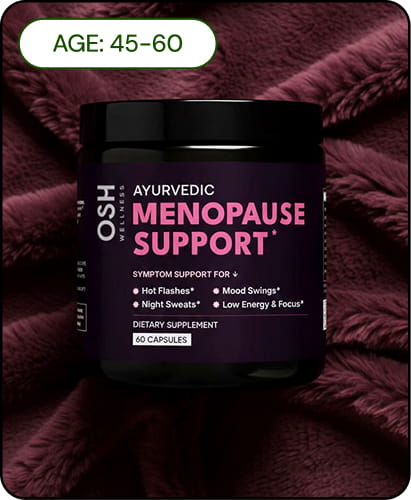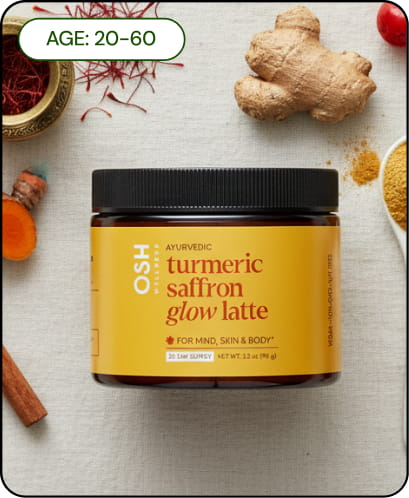CoQ10 is undoubtedly having a moment right now when it comes to fertility. However, other supplements are equally beneficial for healthy sperm and eggs. One of them is selenium.
Most commonly praised for its antioxidants, this mineral is crucial to sperm morphology and motility in men, as well as for follicle development in females. Selenium is an essential nutrient that humans cannot produce. Including it in your diet is necessary but not always easy.
If parenthood is in your future, here’s a fertility-friendly supplement you won’t want to overlook and the best way to meet your intake needs!
What is Selenium?
Selenium is naturally found in the soil, water, and some foods. Our body relies on selenium for various processes, but we cannot produce it ourselves. Therefore, we must obtain selenium from our diet.
Though only small doses of selenium are required for most people, too little can have adverse effects. You need the nutrient for metabolism, reproduction, and to protect against cell damage. Selenium is essential for producing selenoproteins, which describe a handful of proteins and enzymes. Selenoproteins are vital to thyroid function and the metabolism of thyroid hormones, which is why the highest concentration of selenium is often found in the thyroid gland. The rest of your body’s selenium stores are located in muscle tissues.
Why is Selenium Important for Fertility?
Selenium male fertility is all about sperm health. Selenium is imperative in male reproductive health as it influences sperm growth and development, affecting sperm morphology and motility.
Morphology describes the sperm’s size and shape. Normal morphology elicits the highest chances of conception as normal sperm are the right size and shape to swim correctly, reach the egg, and, hopefully, fertilize it. High amounts of abnormally shaped sperm are often linked to infertility and sperm irregularities, including low sperm count. Motility refers to how well sperm can swim. Like morphology, proper motility helps increase the chances of conception.
Selenium affects sperm development in a few ways. Low selenium can impair testosterone production and, as a result, sperm development. Additionally, selenium is a known antioxidant. Antioxidants help to protect sperm in its most early stages when free radicals can cause damage. Selenium has been found to improve DNA fragmentation and fight the effects of oxidative stress in males with poor sperm motility.
There are also many selenium benefits for women.
In females, selenium similarly plays a role in reproductive development. Follicles are tiny sacs filled with fluid in the ovary. They are where a woman’s immature eggs are stored. Each ovary has thousands of follicles, and one grows to be the dominant follicle that will release an egg. Selenium plays a
Selenium supports fertility, pregnancy, and overall health. Learn why this vital mineral is essential for reproductive wellness and daily body functions. Selenium plays a key role in follicle development and ovulation.
Its antioxidant properties are important, too, helping protect the dominant follicle from free radicals and oxidative stress. Selenium helps prevent damage to the endometrium post-ovulation, keeping it healthy so that a fertilized egg can implant and grow. Similarly to selenium’s role in male fertility, the mineral is also linked to progesterone and estrogen hormone production in women.
Selenium is excellent for reproductive health, regardless of gender!

How Does Selenium Play a Role in Overall Health?
Aside from sperm and egg health, selenium can benefit overall wellness. Its antioxidant properties help to protect cells in general, supporting cell and DNA health, reducing the risk of disease and infections, and decreasing the adverse effects of oxidative stress. Selenium is associated with a reduced risk of cancer, improved heart health, and better mental function related to memory and cognitive ability.
As we mentioned, selenium is typically concentrated in the thyroid gland. This is because it is imperative for thyroid health. The powerful mineral both protects the gland from oxidative stress and boosts function. Thyroid hormones, aided by selenium, play a role in metabolism, growth, and development. Some thyroid conditions like Hashimoto’s have been linked to selenium deficiency.
Selenium’s antioxidant potency also makes it excellent during pregnancy as it helps to protect the placenta, having a positive role in lessening the chances of pre-eclampsia, gestational diabetes, and preterm labor.

How Can You Get Selenium?
With all the selenium benefits we’ve covered, you’re probably wondering how to include selenium in your diet. It can be found in protein-rich food sources, such as pork, beef, poultry, eggs, and fish. Vegetarian protein sources, like nuts, lentils, whole-wheat bread, and beans, contain some selenium. In fact, Brazil nuts pack the most selenium of all food sources, with 100 to 200 mcg found in just two nuts.
A supplement can aid those who don’t get enough selenium from their diet. Most individuals only need 55 micrograms daily. Pregnant or lactating individuals are advised to increase this amount to 60 to 70 mcg daily.
Too much selenium can be associated with adverse health effects. Be mindful of adding a supplement if the multivitamin or other products you take already contain selenium. The maximum upper intake level, or how much you can take without incurring negative health outcomes, is 400 micrograms daily.
A Supplement with Selenium for Fertility
You can take a selenium supplement for fertility. Or, you could take a well-rounded supplement that includes selenium as part of its fertility-boosting ingredients. Both Freshly Moms fertility products, for Him and for Her, are designed to support reproductive health and contain 50mcg of Selenium. These supplements are formulated by one of the top Ayurvedic practitioners in the US and made with natural herbs and vitamins.








